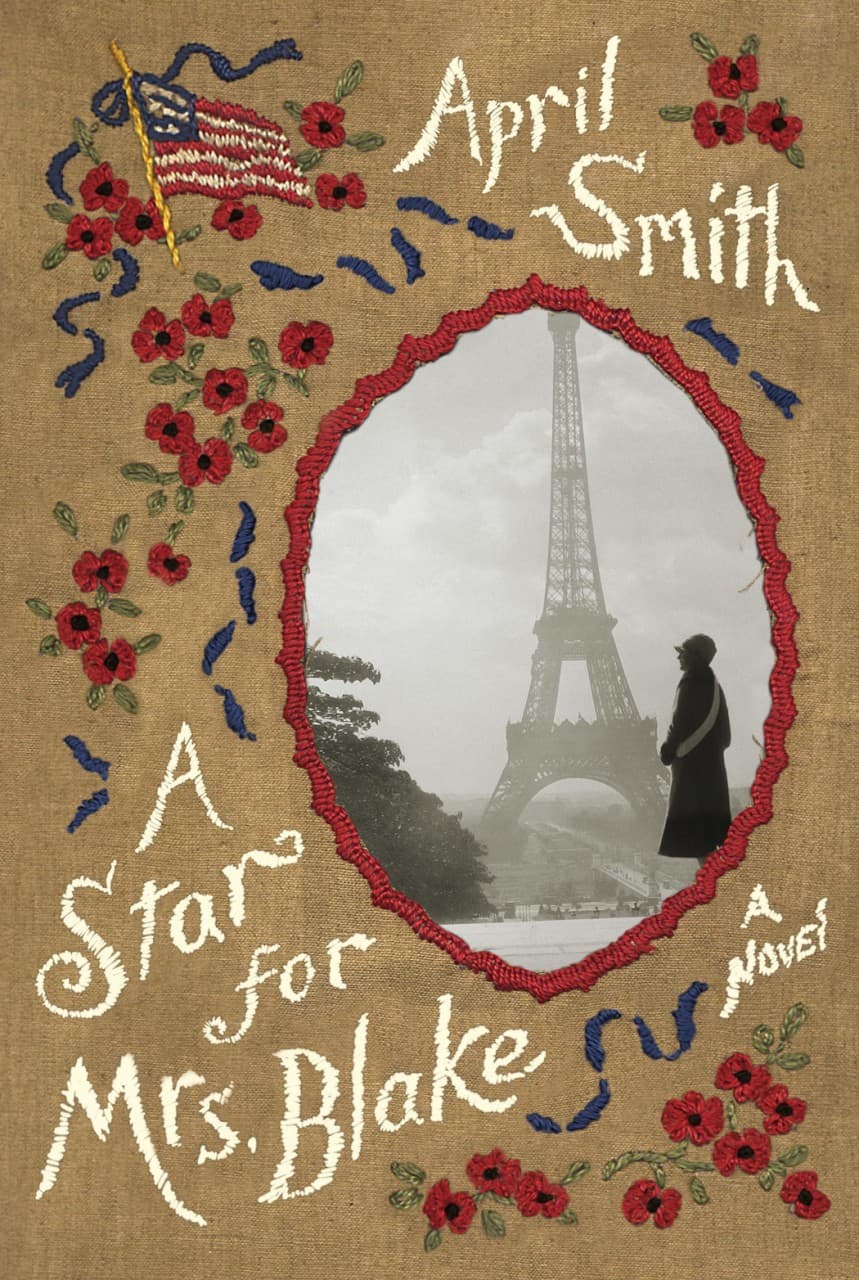Advertisement
The Mothers Of Fallen WWI Soldiers Earn Their Gold Stars
In the winter of 1931, a letter from the U.S. War Department disrupts Cora Blake’s settled life of keeping the Deer Isle, Maine, library open and working the occasional, grueling shift at the local cannery.
It is an invitation for Cora to join other American Gold Star Mothers — mothers of soldiers killed in World War I — on a pilgrimage to the cemeteries in Europe where their loved ones are buried. For the first time, Cora will be able to see the battlefield where her son Sammy died 13 years before, and to visit his grave.

Though most of the characters in April Smith’s historical novel, “A Star for Mrs. Blake,” are fictional, these trips actually occurred. For a few years in the late 1920s to early 1930s, thousands of Gold Star Mothers embarked on this unique, federally funded trip that included stays in New York City and Paris, and a luxury transatlantic cruise.
Since this is about a journey, it fits that Smith, who will be at Porter Square Books Monday night, Feb. 10, has structured the book sections by different locations. She also nicely utilizes the passage of time, moving ahead day by day on the trip, through big happenings and petty annoyances that occur during travel, and casting back in time from Cora’s life.
This is Smith’s first historical novel, but she has years of experience writing stories that possess an assured forward movement. She is the author of the fast-paced, witty mystery novels that feature FBI Special Agent Ana Grey, and she has been nominated for three Emmy awards for her work on TV series and made-for-TV movies.
In 1931, Cora and the other Gold Star Mothers are in their 50s and '60s “and therefore, by the army’s calculation, in a state of physical exhaustion.” That’s merely the government view. Most of these women possess a strength, both physical and spiritual, that usually goes unremarked, since it’s as basic to family life as meals on the table and clean clothes in the closet.
Cora, a plainspoken, small-town woman who can see straight through to the true character of those around her, is exhilarated to be in the company of women from so many different U.S. states.
Her excitement had begun back in Maine, when she’d been named coordinator of Party A from New England. At first, Party A seems merely a politically correct construct. There’s Irish-Catholic Katie McConnell from a large Dorchester family; Jewish Minnie Seibert from a Russian-immigrant farming family; Wilhelmina Russell, a country-club WASP; and heiress Genevieve Olsen, whose family owns the railroad that travels the northeast corridor.

And yet, the diversity on these trips was real. Mothers from all backgrounds shared rooms and meals and seats on tour buses. For Cora and her companions, their differences fade in the face of their larger, primal bond. A warm, honest friendship blossoms between Cora and Genevieve; two women whose paths would otherwise never have crossed.
But no event can escape the era in which it occurs. Segregation permeated even these highly publicized goodwill trips, and Smith highlights this in a tart, effective manner. Although the black Gold Star mothers also visit their sons’ resting place, they travel to Europe on a commercial steamer, and return home without the expensive mementos the War Department lavished on their white counterparts.
A historical novel transports you to another time only by offering enough of the right details, and Smith, who has a gift for dialogue and period slang, shapes the story with an abundance of authentic and atmospheric elements. A wind blowing through a New York City street smells of “old iron pipes and corn roasting on a nearby peddler’s cart;” a former battlefield in France has so many shells in the ground, the copper turns the bark of birch trees to green; U.S. army officers fret about the unstable economic conditions in Germany, and the emerging, unpredictable Nazi Party.
“A Star for Mrs. Blake,” ultimately, is a sensitively drawn portrait of an obscure but consequential event. It is also a story that highlights the power of female community, how that bond can help mitigate even a grief that has no end.